Where Young Men Studied for Service in China (and elsewhere) – Mr Scoones Crammer of Garrick Street
Posted: March 2nd, 2015 | 1 Comment »Scoones crammer school is a much underwritten about place that constantly crops up in memoirs. As most memoirists choose not to go into much detail about the place I can only assume that, in the late nineteenth century, it was a well known institution.
Anyway, here’s a bit of background. Scoones was a crammer for those seeking to enter service in the Foreign Office. It was located at Garrick Chambers on Garrick Street near Covent Garden and next door to the Garrick Club. I first came across it when researching the background of Pamela Werner’s adoptive father ETC Werner, who crammed at the school in the 1880s and passed the Foreign Office entrance exams for a Far Eastern Cadetship and was subsequently sent to Peking as a student interpreter for two years. I had also known that Werner was acquainted with the Africa Hand and writer H. Rider Haggard but was not quite clear on how the two met, given that Haggard never visited China and (though his sister was an early Africa hand at London University) Werner had never visited Africa. Recently happening to glance through Rider Haggard’s autobiography The Days of My Life (Volume 1, published 1926) I noticed that Haggard had also attended Scoones (though dropped out and went to Africa before taking his final exams) and claimed that he made many friends for life. Werner must clearly have been one of these as Haggard later seconded Werner for membership of the Athenaeum Club in London. Incidentally Haggard also recalls having attended séances and spiritualist meetings with other Scoones’ students in St James’s and Hanover Square – both Werner and Haggard retained lifelong interests in séances and spiritualism. As much as their backgrounds at good school (Werner at Tonbridge and Haggard at Ipswich Grammar) being a Scoones graduate provided networks that survived and helped each other for decades within the FO.
Back to Scoones – it was run by William Baptiste Scoones, who was known for getting even the worst dullards through the FO exams and into postings. The curriculum was overseen by André Turquet (1869-1940), the French-born director of Scoones. Many of Scoones “crack team†of teachers were well known too – for instance John Churton Collins, taught Latin at Scoones by day and wrote scathing reviews of literature for the Quarterly Review by night. Apparently though the pay was not good and Collins, like other employees, recalled existing on the poverty line. It’s a little confusing but I think, sometime in the early twentieth century the crammer was taken over by a Mr Diptitch Scoones, perhaps the son of William Baptiste.
One candidate recalled than in 1893 he was told that all but one of the successful FO candidates had attended Scoones. At Scoones pupils (usually arriving when 18) were tutored hard in recommended texts for the entrance exam including Smith’s Wealth of Nations, Mill’s Principles of Political Economy as well as German, French and Latin and how to answer the infamous “Catch†questions that the FO examiners famously set. The pupils were reasonably well off – often second sons with an annual income (required by the FO and on top of Mr Scoones apparently not inconsiderable fees and London lodging fees for the duration of their studies) and lived rather wild lives with drinks at The Fielding Club, regular trips to the Gaiety and Savoy theatres as well as indulging in séances!
Afraid I don’t know much more about SCoones, except that a large number of those men who entered the China section of the Foreign Office and served decades in China (like ETC Werner) must have passed through Mr Scoones’s establishment on Garrick Street. I rather think it deserves a book….
Andre Turquet – Director Scoones (I think!)
The Garrick Club
And Garrick Street today…
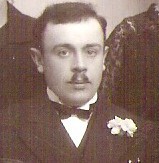
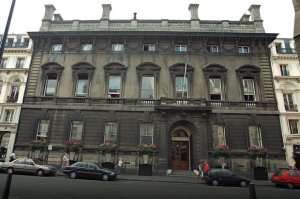
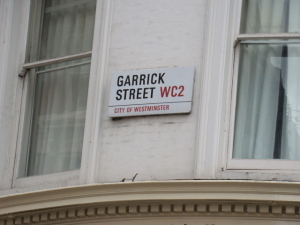
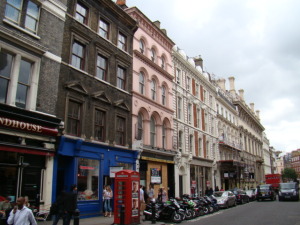
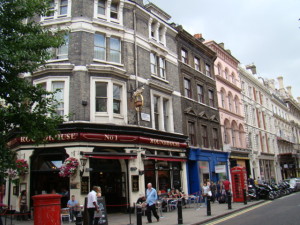
Dear Author,
Maurice Baring, Edward Marsh and George D. Grahame all went to Scoones between 1896 and 1898, and they became friends there, presumably. I believe Claude Russell also attended. Baring mentions Scoones, if only fleetingly, in his memoirs, “The Puupet Show of Memory”, and Edward Marsh´s biographer also mentions it. Thanks for the info in this article.